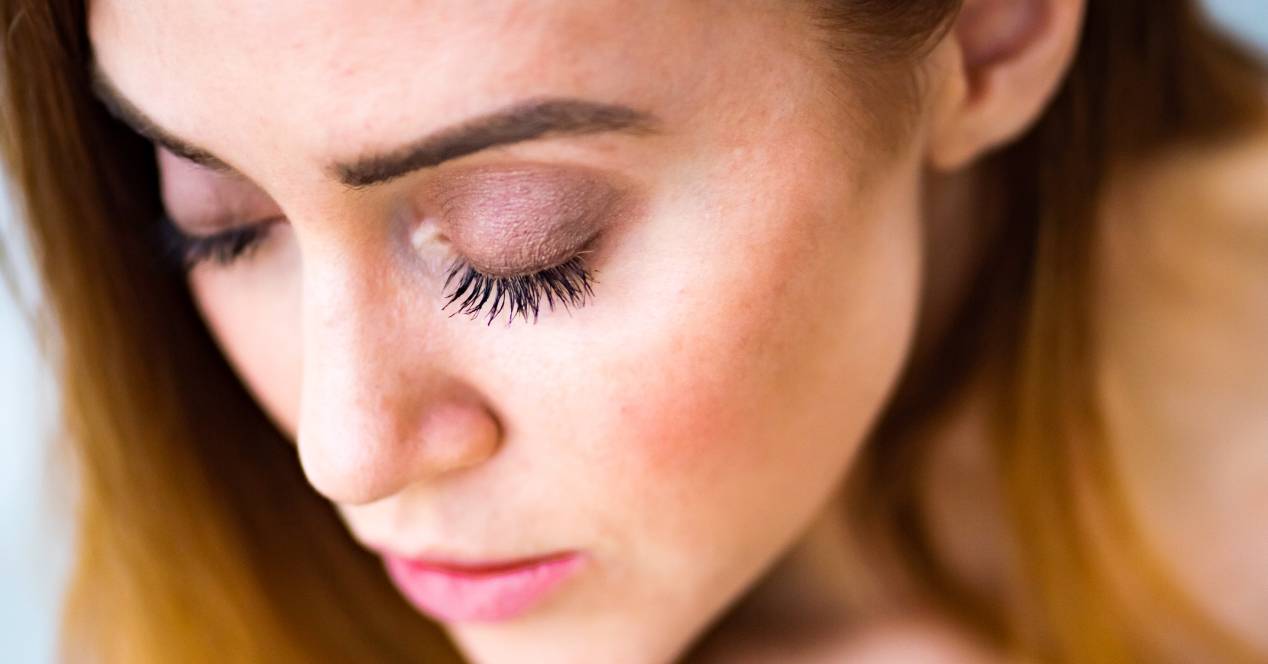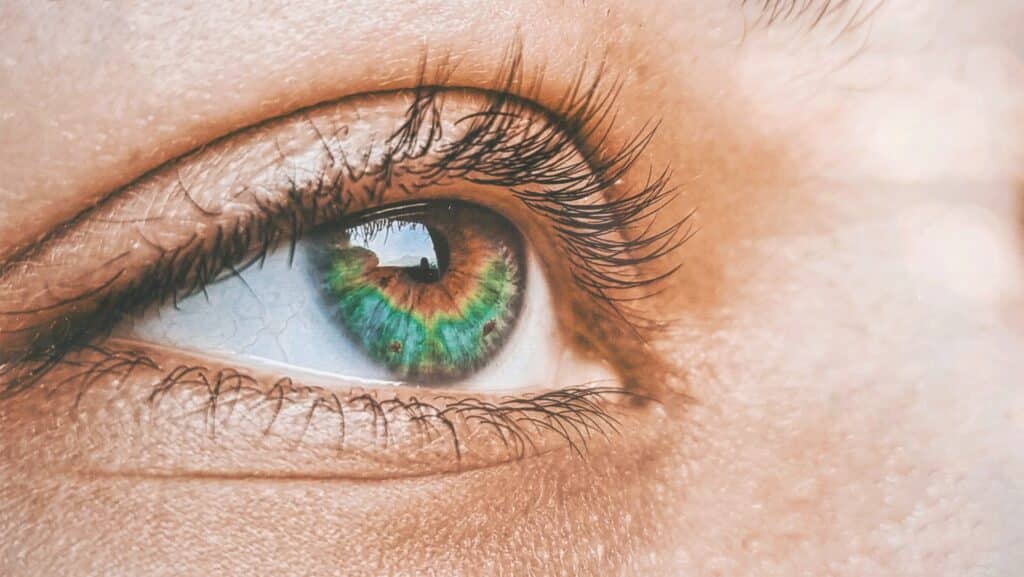
Eyelid twitching, or myokymia, is an involuntary, repetitive spasm of the eyelid muscles that many of us have felt without detectable origin. This contraction normally occurs in the upper eyelid, but it can occur in the lower eyelid and be perceived as a nervous tic.
For most people, these twitches are very mild and feel like a gentle pulsing in the eyelid. Others may experience a spasm strong enough that it forces both eyelids to close completely. In this case we will be facing a condition called blepharospasm.
The spasms usually occur every few seconds for a minute or two, although they are unpredictable. There may even be cases of contractions that appear intermittently for several days. So you may not experience any spasms for weeks or even months. In principle they are painless and harmless, but serious discomfort can appear if the situation worsens. Most spasms will resolve on their own without the need for treatment, although they may occur due to an underlying problem that does require treatment.
Causes of eyelid twitching
Eyelid twitching can occur without an identifiable cause. Since they are rarely a sign of a serious problem, the cause is often not investigated. However, eyelid twitching can be caused or worsened by eye irritation, eyelid distension, fatigue, lack of sleep, physical exertion, medication side effects, stress, or the use of alcohol, tobacco, or caffeine.
If the eyelid twitching becomes chronic, you may experience a "benign essential blepharospasmwhich is the name for chronic, uncontrollable blinking. This condition usually affects both eyes. Although the exact cause of the condition is unknown, there are factors that can worsen the twitching such as blepharitis or inflammation of the eyelid, conjunctivitis, dry eyes, environmental irritants, fatigue, sensitivity to light, stress, too much alcohol or caffeine.
Myokymia, for unknown reasons, is more common in women than in men and usually begins and ends spontaneously. It can also be a problem, as they are very distracting and prevent you from concentrating on the task at hand, which in turn affects work performance. There are even times when it is necessary to close the eye to relieve the pangs.
Complications of eyelid spasms
Rarely, eyelid twitching is a symptom of a more serious brain or nerve disorder. When spasms are the result of these more serious conditions, they are almost always accompanied by other symptoms. If you think you have an eye injury, see an optometrist or ophthalmologist right away. Corneal scratches can cause permanent eye damage.
Brain and nerve disorders that can cause eyelid twitching include:
- Bell's palsy (facial palsy): condition that causes one side of the face to droop downward
- Dystonia: unexpected muscle spasms in which the part of the body in the affected area twists or contorts
- cervical dystonia (spasmodic torticollis) - causes the neck to spasm randomly and the head to twist into awkward positions
- Multiple sclerosis: central nervous system disease that causes cognitive and movement problems, as well as fatigue
- Parkinson's Disease- can cause tremors in the extremities, muscle stiffness, balance problems, and slurred speech
- Tourette syndrome: characterized by involuntary movements and verbal tics

How to treat eyelid twitch?
The spasms are rarely severe enough to require emergency medical treatment. However, if they are chronic, they may be a symptom of a more serious brain or nervous system disorder.
You may need to see your doctor if you have chronic eyelid twitching along with red or puffy eyes, a droopy upper eyelid, or an eyelid that closes completely. It is also recommended to go if the spasm continues for weeks or begins to affect other parts of your face.
The most common causes of eyelid twitching are stress, fatigue, and caffeine. To relieve eye twitching, you may want to perform a few Home Remedies like drinking less caffeine, getting enough sleep, or applying a warm compress to your eyes. You can also keep your eyes lubricated with artificial tears or over-the-counter drops.
They can also be used botulinum toxin injections (Botox) to treat benign essential blepharospasm. Botox can relieve severe spasms for a few months. However, as the effects of the injection wear off, you may need more injections, as the underlying problem is not being treated.
La surgery to remove some of the muscles and nerves in the eyelids (myectomy) can also treat more serious cases of benign essential blepharospasm.
Can they be prevented?
If your eyelid twitches occur more frequently, keep a journal and note when they occur. Consider your caffeine, tobacco, and alcohol intake, as well as your stress level and the amount of sleep you've been getting in the lead up to and during the eyelid twitching.
As one of the most common causes of eyelid twitching is lack of sleep, you should make sure that you Sleep eight hours every night to help prevent unexplained eyelid twitching. You can also try changing your diet to incorporate healthier foods, as well as making sure you are well hydrated.
Overexposure to digital screens it can also strain your eyes and cause twitching of the eyelids. You may have noticed them at the end of a long day in front of your computer around your eye. Taking breaks and spending time away from screens can significantly help reduce the effects of myokymia.
If you notice that you have more twitching when you don't get enough sleep, try going to bed 30 minutes to an hour early to help relieve tension in your eyelids and reduce twitching.